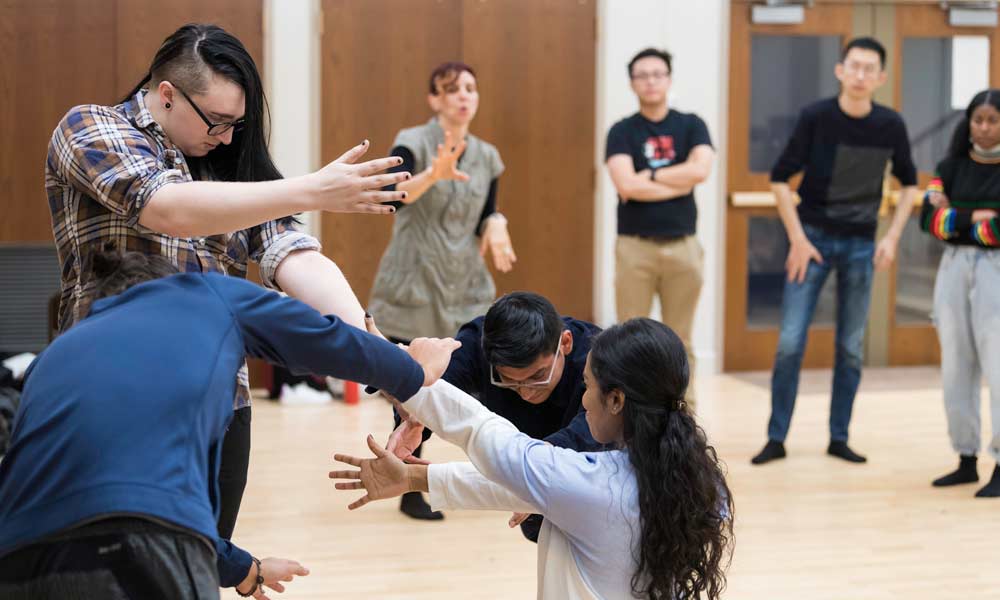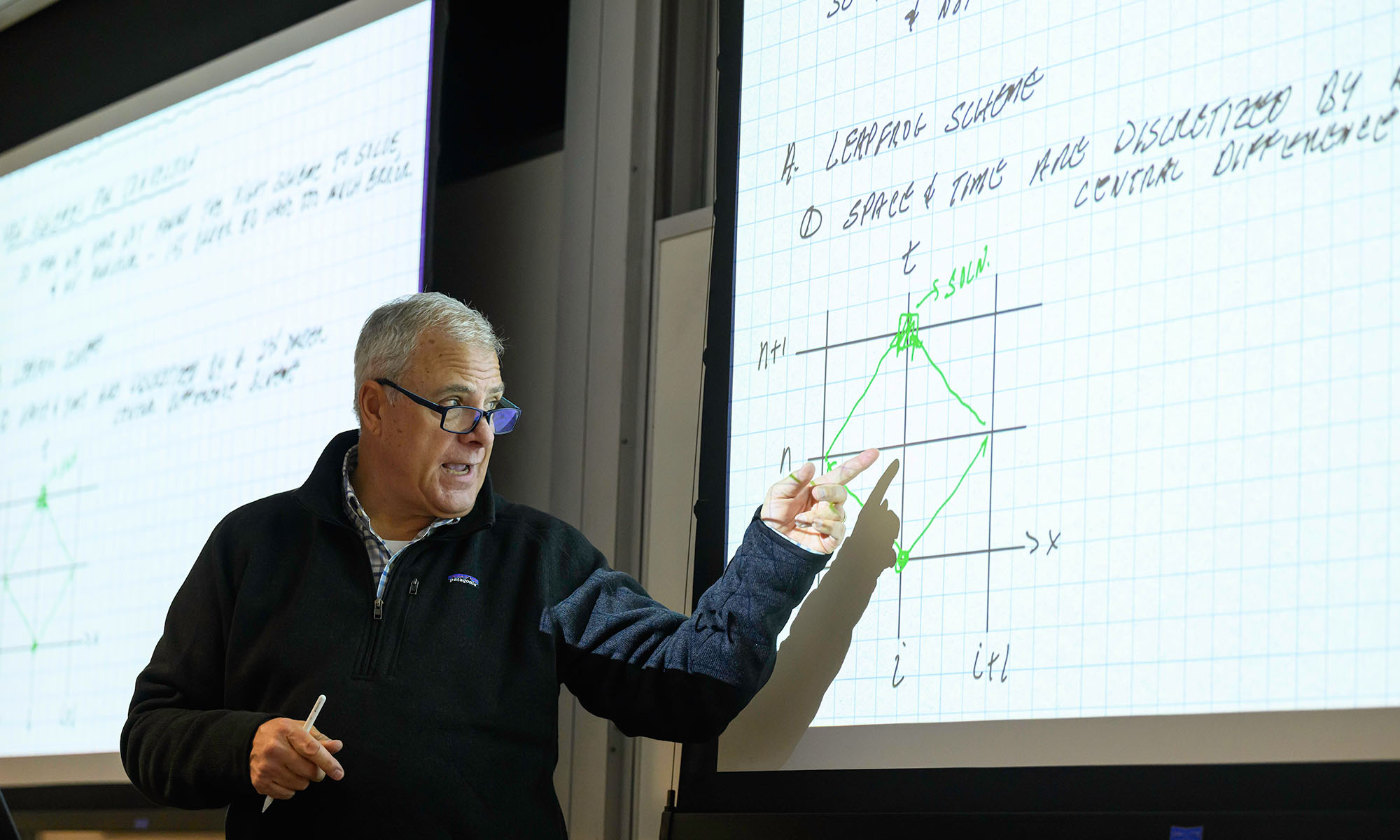Last fall, students from a public health course and a dance class got together for a day of combined learning.
In effort to understand how to initiate change in a community, students in Arts and Activism, and their counterparts in Environmental Health and Justice in the Rochester Community, met up in the Linda E. Sloan Studio of Todd Union to create some new moves.
The Arts and Activism students were using dance to explore the relationship between social activism and artistic practice. Earlier in the semester, the students—in collaboration with a local organization—used visual art, film, and performance to create a two-night interactive installation that would show the importance of voting during the 2018 mid-term elections. Now, they would study a new chapter that would explore the theater practice known as “Theater of the Oppressed” as a vehicle for community organization, expression, and action.
“We talk about communication and how to communicate ideas using theater practice,” says Rose Pasquarello Beauchamp, instructor for Arts and Activism and senior lecturer in the Program of Dance and Movement.
“I thought my students would gain a broader perspective on communication from this experience,” says Katrina Smith Korfmacher, director of community outreach and engagement core for the Environmental Health Sciences Center. In her Environmental Health and Justice class, students had been working over the semester with several local groups to collect and analyze data for projects such as the protection of the City of Rochester’s drinking water supply as well as the condition of the bike trails for the Genesee Riverway Trail.
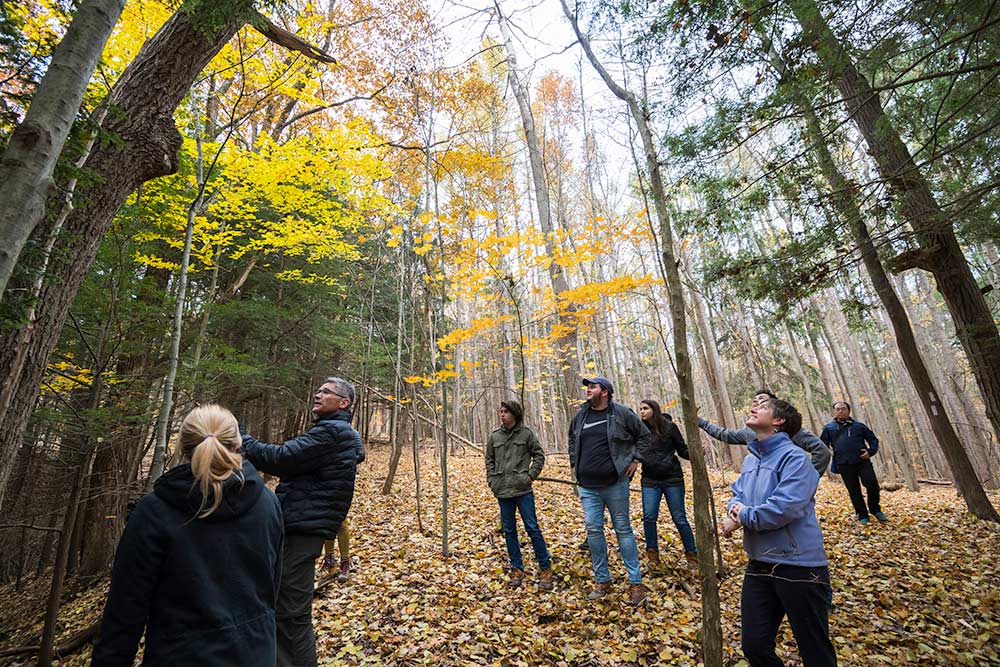
The students’ final projects would require them to create reports or generate a communication product for a community organization. Korfmacher wanted her students to understand how they might need to tailor their presentations for diverse or under-resourced communities. “They might need to think beyond policy briefs, brochures, and info graphics,” she says.
Korfmacher and Beauchamp joined forces after getting to know one another as recipients of Community-Engaged Course Development Grants through the Rochester Center for Community Leadership. “It’s one of our goals that faculty also serve in a mentorship role to help other faculty create their own community engagement coursework,” says Alissa Clark, coordinator for the program. Beauchamp had previously taught a community-engaged course and led a presentation for others. “We support each other,” says Beauchamp. “And this class works out for both of us.”
On the day of the crossover class, the students broke up into smaller groups where they selected an issue of injustice. It might be corruption in politics, or homelessness, for example. The groups of students would then set up a scene portraying the issue, while the audience, one person at a time, changed one aspect of the scene.
Beauchamp explains the “Theater of the Oppressed” as providing the tools for people to explore collective struggles, analyze their history and present circumstances, and then experiment with inventing different futures through theater. “It’s improvisational theater,” says Beauchamp. “We could only experiment with one part of it, since this was only a one-hour class.”
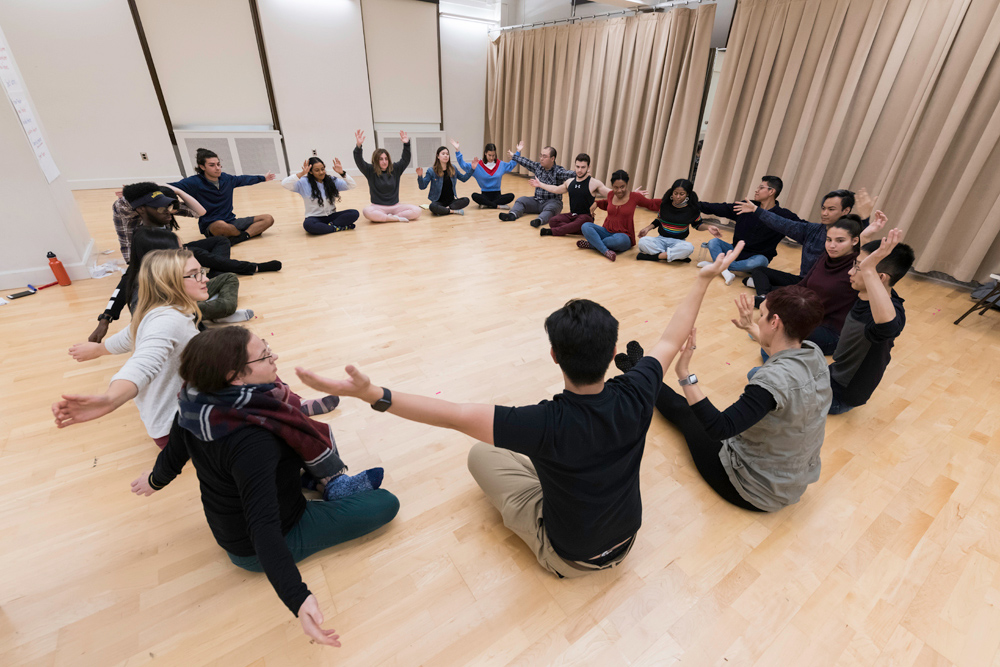
“The thing that hit me the hardest was when people wouldn’t agree with the change I made,” says Christina Krewson ’21. “You would change it and think ‘no, this is still wrong, or I made it worse.’ And if you were trying to change something with just one little step, it wasn’t enough. It had to be everyone building on top of each other, and finally at the end we said, ‘OK, this structure makes us feel better,” she says.
Says Korfmacher: “My students had read case studies about working with Latino communities in the Bronx who used murals to raise awareness of asthma, and they talked about why they chose to use that modality in that setting? I wanted the students to stretch their understanding of the possibilities for communicating their research to Rochester communities.”
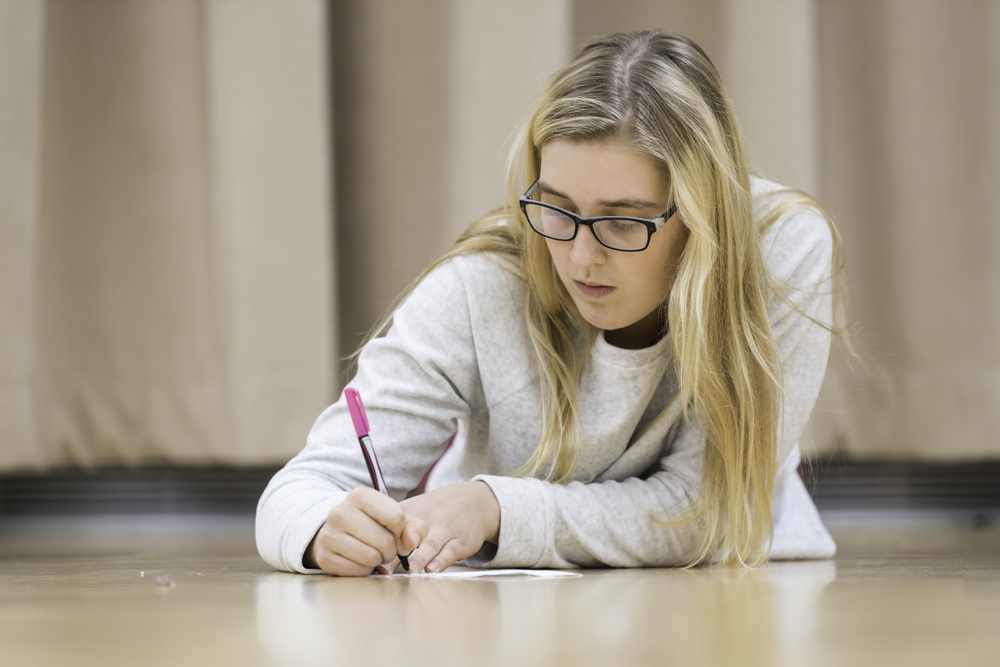
“It was a mode of theater that I had never experienced before,” says Krewson, who plans to major in public health. “The idea that we could all—a whole bunch of strangers—jump in and play off each other’s ideas was really cool. And for me after the class, I was like, ‘I want to do this with other people!,’ because I want everyone to have the same experience. It really changes your perspective on how you view what change is.”

